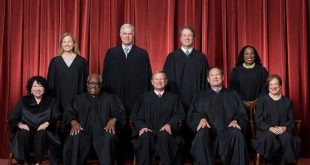First they banned church members from meeting inside church buildings because of the COVID-19 crisis. Then they banned congregants from meeting in their cars in church parking lots. Now a state has banned congregants from holding services inside homes.
Liberty Counsel, which represents Harvest Rock Church and Harvest International Ministry, has filed a lawsuit against California’s Gov. Gavin Newsom for issuing an executive order that bans all indoor worship services, including home Bible studies and fellowship.
From Liberty Counsel:
On July 6, 2020, the governor issued yet another revised “Worship Guidance” document which states unequivocally: “Places of worship must therefore discontinue singing and chanting activities and limit indoor attendance to 25% of building capacity or a maximum of 100 attendees.” (emphasis added).
On July 13, 2020, Governor Newsom announced that the counties on the California Department of Health’s County Monitoring List must close all indoor operations. In-person worship services are not permitted in these counties. Additional counties may be placed on the list, which is currently covers about 80 percent of the population. This ban on in-person meetings, also applies to home Bible studies and fellowship meetings.
Liberty Counsel noted that Gov. Newsom encouraged anti-police protestors to gather. He released an official statement in May “praising and encouraging” protestors and held a press conference on June 1, in which he said, “Thank you;” “God bless you;” and “Keep doing it.”
“Governor Gavin Newsom cannot disregard the First Amendment and ban all in-person worship in private homes and churches,” Liberty Counsel Founder and Chairman Mat Staver said. “Nor can the state micromanage the form of worship by banning singing or chanting. The governor is not the High Priest over all religions. There [are] not two First Amendments – one for protests and one for houses of worship. Gov. Newsom encourages thousands of protesters to gather in the streets but bans in-person worship and home Bible studies and fellowship. This discriminatory treatment is unconstitutional.”
Photo credit: Gage Skidmore (Creative Commons) – Some rights reserved
 CURE News and Clergy Blog News and Commentary for Christians
CURE News and Clergy Blog News and Commentary for Christians



